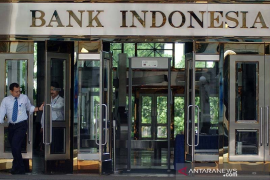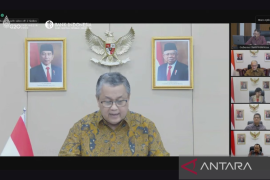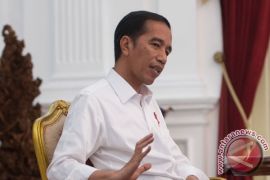Bank Indonesia would keep on monitoring the impact of the decreasing global economic and financial performance on Indonesia`s economic performance, especially the impact of the slowdown of the world`s trade volume and the decreasing global commodityJakarta (ANTARA News) - Foreign capital inflows and the rupiah`s appreciation are likely to continue with higher volatility due to a slowing in global economic growth, Bank Indonesia (BI or the central bank) said.
A slower-than-expected economic recovery in developed countries has caused a rise in access to global liquidity and investors` risk perception, and these factors in turn would prompt capital to keep flowing to emerging economies , including Indonesia, in the form of project or portfolio investment, BI spokesman Difi A Johansyah said here Wednesday.
Bank Indonesia would keep on monitoring the impact of the decreasing global economic and financial performance on Indonesia`s economic performance, especially the impact of the slowdown of the world`s trade volume and the decreasing global commodity prices, he said.
In this case, Bank Indonesia would respond to the interest rate and the mixture of policies on monetary and other macro prudential affairs to mitigate a possible decrease in Indonesia`s economic performance by giving priority to efforts to reach the inflation target, namely, 4-6 percent in 2011 and 3.5-5.5 percent in 2012.
The central bank would also enhance policy coordination with the government in anticipation of the impact of the declining global economy and finance.
The exchange rate of rupiah was expected to strengthen although relatively limited. In August 2011, the exchange rate of rupiah slightly strengthened by 0.05 percent to the level Rp8,525 to the US dollar with the declining volatility, although it was once pressured by global sentimental factor due to worries about the economic prospect in the US and Europe.
Bank Indonesia continues to monitor the development of rupiah exchange rate and ascertain the sufficiency of rupiah liquidity and foreign exchanges which were needed to balance the domestic market.(*)
Editor: Heru Purwanto
Copyright © ANTARA 2011








